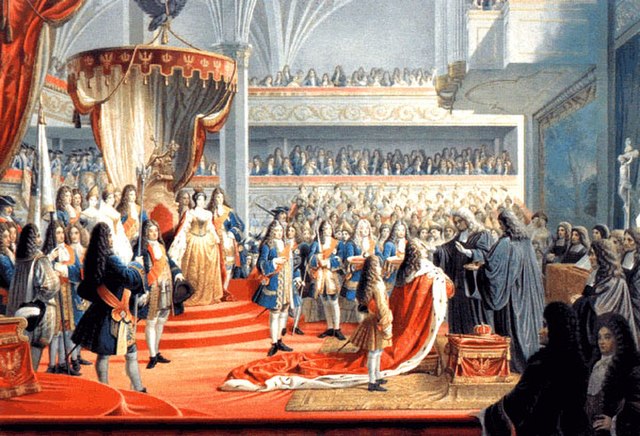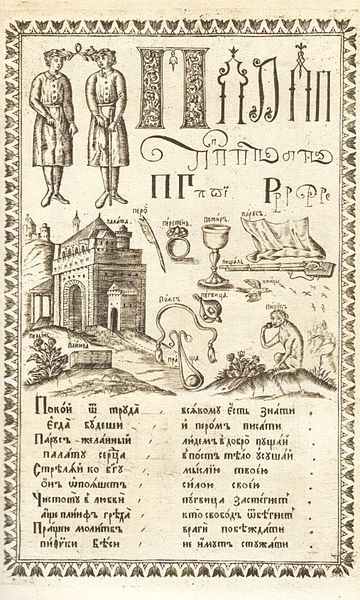Kaliningrad, until 1946 known as Königsberg, is the largest city and administrative centre of Kaliningrad Oblast, a Russian exclave between Lithuania and Poland. The city sits about 663 kilometres (412 mi) west of the bulk of Russia. The city is situated on the Pregolya River, at the head of the Vistula Lagoon on the Baltic Sea, and is the only ice-free Russian port on the Baltic Sea. Its population in 2020 was 489,359, with up to 800,000 residents in the urban agglomeration. Kaliningrad is the second-largest city in the Northwestern Federal District, after Saint Petersburg, the third-largest city in the Baltic region, and the seventh-largest city on the Baltic Sea.
Anointment of Frederick I after his coronation as King in Prussia in Königsberg, 1701
The monument to Kalinin on the Kalinin Square (former Reichsplatz), built in 1959
The Königsberg Cathedral, restored in the 1990s
The Pregolya River in Kaliningrad
Russian is an East Slavic language, spoken primarily in Russia. It is the native language of the Russians and belongs to the Indo-European language family. It is one of four living East Slavic languages, and is also a part of the larger Balto-Slavic languages. It was the de facto and de jure official language of the former Soviet Union. Russian has remained an official language in independent Russia, Belarus, Kazakhstan, Kyrgyzstan, and Tajikistan, and is still commonly used as a lingua franca in Ukraine, Moldova, the Caucasus, Central Asia, and to a lesser extent in the Baltic states and Israel.
This page from an "ABC" book printed in Moscow in 1694 shows the letter П.
The Ostromir Gospels of 1056 is the second oldest East Slavic book known, one of many medieval illuminated manuscripts preserved in the Russian National Library.






